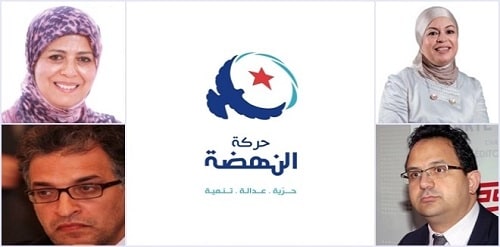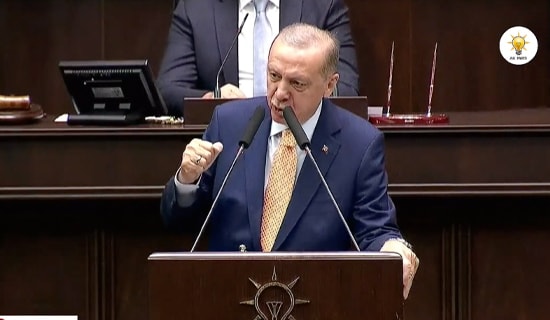Introduction
On January 5, 2015, recently elected President of the Tunisian Republic Beji Caid Essebsi handed the letter of appointment to Habib Essid to form the next government in compliance with the provisions of Tunisia's Constitution. Essid has been officially appointed to form the next government at the request of the majority party in parliament, Nidaa Tounes, which won a relative majority in the October 26, 2014 legislative elections. However, his nomination has been described as "consensual,"[1] since Essid was chosen after political parties reached an agreement over his nomination.
On January 23, 2015, Essid, now prime minister, announced the lineup of his cabinet. His proposed government comprised national competencies that included political figures, civil society activists, and experts, with a substantial presence of women and youth. The two represented parties were Nidaa Tounes and the Free Patriotic Union which is the third party in terms of size represented in the Assembly.
The proposed government included no cabinet posts for members of the Islamist party Ennahda, which holds 69 seats in the 217-seat Assembly of the Representatives of the People.
In an official statement, Ennahda announced that it would not vote to grant confidence to the proposed government. Other parties announcing the same included the leftist Popular Front party and the liberal party Afek Tounes, which were also excluded from it.
On January 26, interim prime minister Mehdi Jomaa presented the resignation of his government to Tunisian President Beji Caid Essebsi. The latter accepted his resignation and asked Jomaa to continue to look after the management of current affairs until the inauguration of the new government, in compliance with the new country's Constitution.
Following Criticism, Vote Of Confidence On Proposed Government Postponed Indefinitely
The government proposed by Prime Minister Essid and presented by him on January 23 was so poorly received that the vote of confidence on it in the Assembly of the Representatives of the People has been postponed indefinitely. It failed to win over either the political parties or of the civil society. Consequently, many parliamentarian groups and political formations announced that they would not support it. On January 26,[2] the vote of confidence in the Essid cabinet was postponed as the Assembly failed to adopt its internal rules. According to the Tunisian News Agency, the move sought to allow time for consultation among presidents of parliamentary groups and representatives of political parties so as to build consensus.
Essid's proposed government left many observers and political actors puzzled, or even furious. One reason for this was that the Popular Front and Afek Tounes parties, which won fourth and fifth place respectively in the legislative elections and which might have given additional support to the Nidaa Tounes party with its relative majority in the parliament, were excluded from it.
New Proposed Government Includes Ennahda In Cabinet
In order to obtain Assembly approval for a government, on February 2, Prime Minister Essid proposed a coalition government that, while it remains dominated by the secular Nidaa Tounes party, includes both the Islamist Ennahda and liberal Afek Tounes parties.
Representatives from the leftist Popular Front have maintained that they will reject Essid's new cabinet.
SUPPORT OUR WORK

The new proposed government includes three ministries for Afek Tounes (Women's Affairs; Development, and Investment and International Cooperation; and Technology of Communication). Ennahda spokesman Zied Laadheri was nominated minister of Employment, and Boutheine Yaghlane was nominated junior minister of Finance; Amel Azzouz, junior minister of Investments and International Cooperation, and Najmeddine Hamrouni, junior minister of Health Care Institutions.

Ennahda enters the government: Counterclockwise from bottom right: Ennahda Party Employment Minister Zied Laadheri and the three junior ministers. Photo Credits: Mosaiquefm.net (Tunisia), February 2, 2015
The main ministries, Justice and Defense, were given to independent figures. Mohamed Salah Ben Aissa, law professor and junior minister under Essebi's government in 2011, was proposed as Justice Minister; Ferhat Horchani, law professor and president of the Tunisian Association of Constitutional Law, was proposed as Minister of Defense. The post of Minister of Interior was given to magistrate Nejem Gharsalli, who maintains that he is independent and has no relationship with Ennahda.[3] Ghasalli's appointment is considered controversial, since he is perceived as a man of the former Ben Ali regime.
Nidaa Tounes Supporters Feel Betrayed
Nidaa Tounes supporters feel betrayed by Ennahda's inclusion in the government, since the majority of Nidaa Tounes' supporters voted for the party in order to remove Ennahda from the government and start a new chapter of Tunisian political life. Thus, the decision to include Ennahda in the government is considered a step backwards in the liberal reforms of the country.
Tunisian professor of contemporary history of the Arab world Adel Ltifi explained on his Facebook page on February 2 that Ennahda's aim is to take over the government and to separate Nidaa Tounes from its allies.[4]

Source: Facebook.com/adel.ltifi?fref=ts, February 2, 2015.
Additionally, Tunisian journalist Kerim Bouzouita[5] posted on his Facebook page on the same day his commentary on Nidaa Tounes' choice, with a quote attributed to writer Julien Green: "The majority of people betray their youth."

Source: Facebook.com/kerimbouzouita?fref=ts, February, 2, 2015.
Also on February 2, Tunisian columnist and Nidaa Tounes voter Rachid Barnat expressed the view that by accepting Ennahda in the new government, Nidaa Tounes had shown itself incapable of leading the country:
"[By] accepting in this government the enemies of Bourguiba, of freedom, and of modernity, Nidaa Tounes shows not only that it betrayed its electors, but that it is unable to get the country on the track of progress and democracy. Nidaa Tounes insulted its millions of electors of all ages who mobilized to free the country of the Islamist vermin, and it will pay the price for doing so... The country is today lead by ayatollah [Ennahda leader Rachid] Ghannouchi, as he managed to achieve his Machiavellian plan in the face of these cheap opportunists."[6]
Barnat adds that the only solution for bringing Tunisia back to the path of democracy is to dissolve the Assembly and hold new elections.[7]
*A. Mahjar-Barducci is Research Fellow for North African Studies at MEMRI.
[1] Leaders.com.tn/article/15961-pourquoi-habib-essid-est-pressenti-pour-la-presidence-du-gouvernement, accessed February 3, 2015.
[2] TAP (Tunisia), January 26, 2015.
[3] Realite (Tunisia), January 26, 2015
[4] Realite (Tunisia), February 2, 2015.
[5] Realite (Tunisia), February 2, 2015.
[6] Troisieme Republique Tunisienne Blogspot, February 2, 2015.
[7] Troisieme Republique Tunisienne Blogspot, February 2, 2015.




